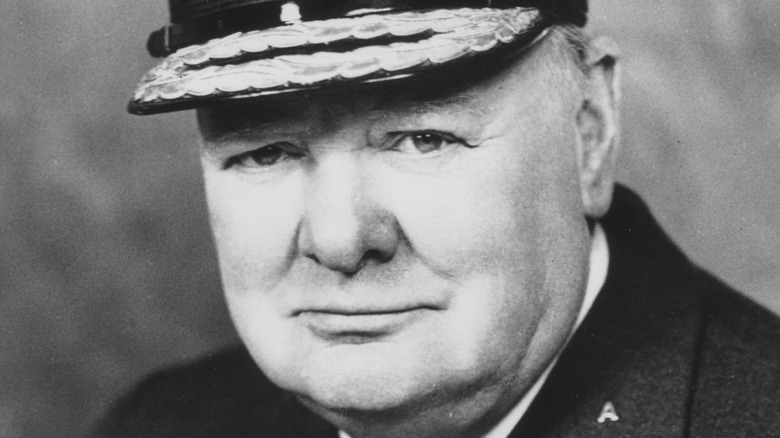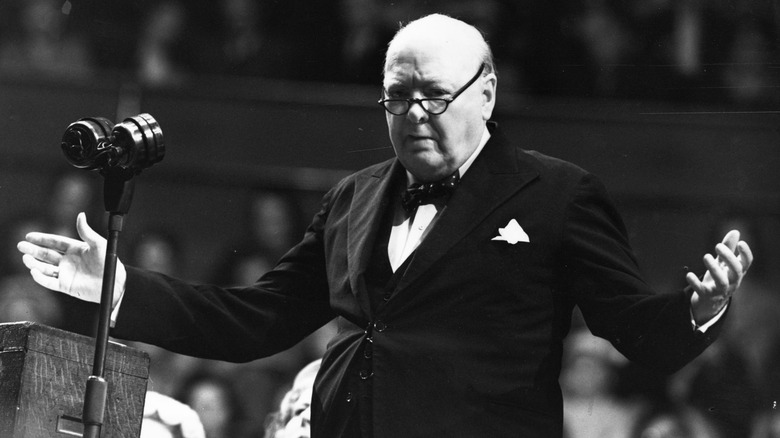How American History Classes Lie About Winston Churchill
As Britannica reports, Winston Churchill was British prime minister twice — from 1940 to 1945 and again from 1951 to 1955. His first term, of course, was blighted by the long shadow of World War II. Still, he successfully steered Britain through the conflict, serving as a crucial member of the Allies along the way.
History classes tend to paint Churchill as a dogged, determined, cigar-loving statesman. A man whose small island home was beset by threats on all sides, but saw the threat off through that legendary British spirit of keeping calm and carrying on.
It's certainly true that Brits, like the rest of the world, suffered and sacrificed in the name of the war effort — both on the front and at home. It's also true that with help from the Allies, Churchill and his valiant forces triumphed in key conflicts, such as the Battle of Britain. They defended their own borders and ultimately made a vital contribution to the defeat of the Axis Powers. As reported by the BBC, Churchill was celebrated for his role in these events and honored with a state funeral a week after his death on 24 January 1965. He was not, however, universally beloved as a national hero. Far from it, in fact.
From defeat to victory to defeat
As World War I raged, Winston Churchill served as the first lord of the Admiralty, per Britannica. In that capacity, he pushed for the disastrous Gallipoli campaign, which was an attempt to claim Constantinople and lend further support to Russian forces. The operation floundered, prime minister H.H. Asquith resigned, and he pushed for Churchill to do the same. By November of 1915, Churchill had withdrawn from government, serving as a colonel in France.
Sadly for Churchill, his popularity seemed to plummet again after World War II. His party, the Conservatives, were promptly defeated in the July 1945 General Election, per the BBC. It seemed that Churchill, who had led with vigor and passion during the war, was unsure how to lead a nation that wanted peace and security. With the conflict not yet over, Churchill appeared to come across too aggressively in his attempt to decisively end it.
Mutterings that Churchill wanted to take the fight to Russia also hurt him. Indeed, this plan was revealed to be true in his top-secret Operation Unthinkable, a large-scale attack on the Soviet Union, per The History Press. Ultimately, Clement Attlee's Labour Party, on its platform of social change and sweeping reform, won the day. Prior to his defeat, Churchill confessed to Attlee: "I've tried them with pep and I've tried them with pap, and I still don't know what they want."

